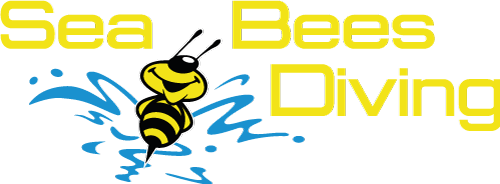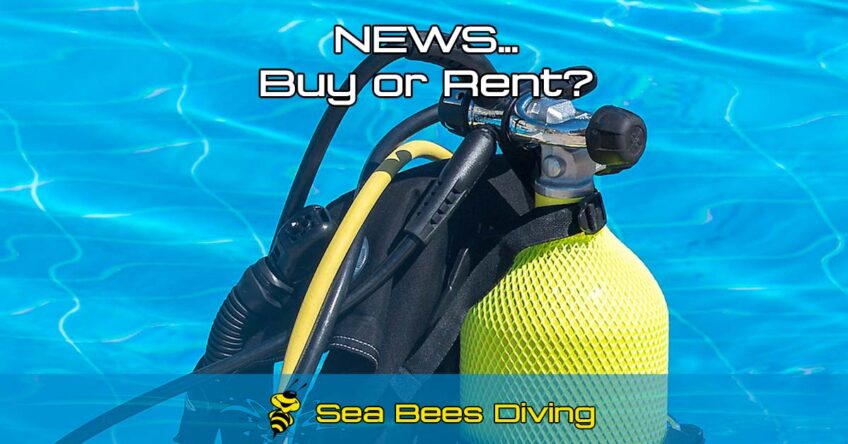Once you start your scuba diving you are likely to never want to stop
Exploring the ocean is a hard habit to kick once you’ve taken the plunge and your addiction comes with some expenses. Scuba diving is impossible without the diving equipment.
Every piece of your gear needs to be in top working order, whether it is your regulator or mask strap. One of those two is considerably more expensive than the other, but you need both to go on a dive. When you start diving, you will likely use rental gear, and perhaps after you have caught the diving bug, might start to consider putting together your own set.
Here are a few words of advice on what to think about in general when looking at dive gear, whether it is renting a full set, buying a full set, or anything in between.
Instinctively, many people wait a bit before buying the whole package, and rightfully so. It’s quite an investment to make right when you’ve first started!
Furthermore, it is a lot of stuff to carry with you when escaping to a nice warm destination for a diving vacation. Many experienced divers will still rent some parts of the equipment just for this reason. So what considerations are there when looking at the whole package?
In this ‘whole package’ you’ve got quite a few elements:
Your mask, fins and snorkel, followed by the wetsuit, BCD, regulator and dive computer.
Most dive centers will have all of these things available. Whether a dive computer is included in a standard set of rental equipment depends on where you go, but even these are widely available. So take your experience level, the distance you have to travel, and the details you find yourself being picky about into consideration.
The big question: Buying or renting scuba dive equipment?
The development of dive gear over the past ten years has been incredible. If you take care of new equipment, you can use most dive gear for a lifetime. Wetsuits are probably one of the only things that will stop functioning after a significant amount of use but this is an exception to the rule.
Your experience level will dictate what you need. If you have gained quite some experience and have developed personal preferences about different types of gear and configurations, it is a good idea to put together your own set. On the flip-side, when you come right out of your open water course, it’s probably a better idea to wait with all the expensive bits. Do a few more dives and figure out if you want to really take this further.
Does this take you into colder waters eventually, or perhaps to greater depths with different gas mixes? These potential limits are what should come into play when deciding which equipment to buy. Some regulators and BCDs are really only suitable for the warm tropical water we have here in Thailand, so if that is all you plan on doing, why spend more?
Conversely, if you suspect you might one day take the plunge in cold water, a proper cold water regulator is an absolute necessity. A mask, fins and snorkel are something many divers buy immediately as they are quite personal items and affect the immediate comfort of your dive. These also fit into your luggage quite easily! This brings us to travelling. If you plan to dive every day of your trip, you probably don’t need much more than a few t-shirts and your dive gear so luggage allowance isn’t a problem.
Only diving on holidays? Buy only the essentials and rent the rest!
However if, like many holiday makers, you just want to do a few dives throughout your vacation, it’s quite a lot of hassle to drag a full set of dive gear with you. Fins, BCDs and wetsuits are often the heaviest part of your equipment that aren’t so easily hidden in your hand luggage.
As they are available for rent just about anywhere, the decision to leave them at home depends entirely on how picky you are about using rental gear during a short dive trip! Regulators and dive computers are of course considerably more compact, so as long as you can act as if your small carry on weighs less than it does, these are usually pretty easy to walk onto a plane with.
So whether to rent or buy any of these things, weigh up what you can afford against how often and where you will be using it! Just bear in mind, if it’s between compromising or saving a little bit longer, whatever you end up buying, if you take good care of it you will likely have it in working order for the majority of your diving life!
And by the way: Of course you can rent all your scuba diving equipment at any of our locations here in Thailand.
Got any questions? Please don’t be shy and get in touch with us now!


